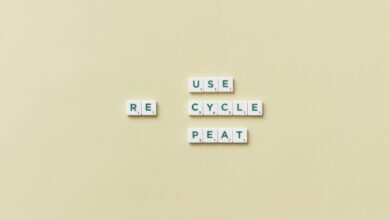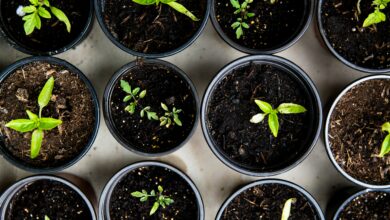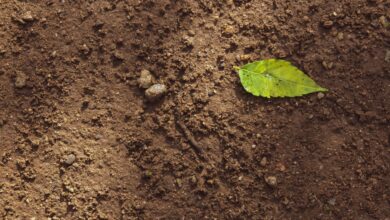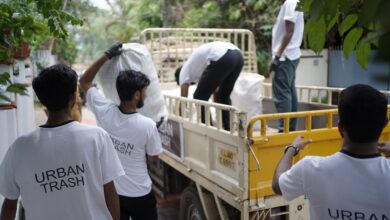#GreenGossip Podcast: The Story Of The “Sustainable” Souled Store
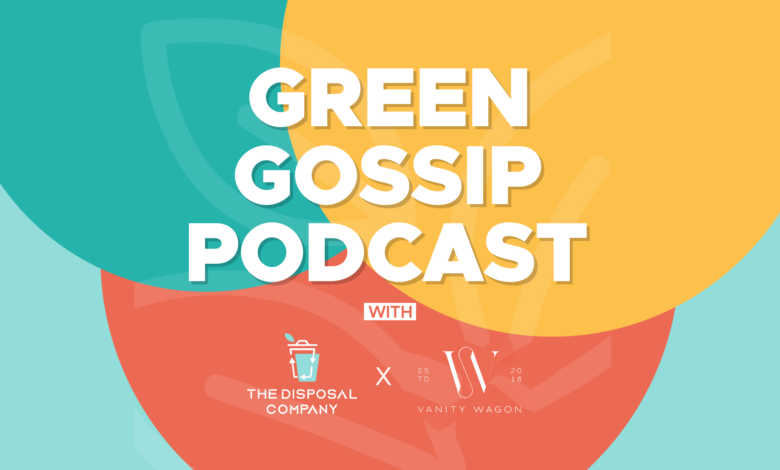
Green Gossip is a podcast that explores the latest news, trends, and stories from the world of sustainable living. It is sponsored by Vanity Wagon and brought to you by The Disposal Company. Join us as we interview industry experts and showcase the people behind popular brands. Whether you’re interested in eco-chic or just looking for some inspiration, we’ve got you covered. So sit back and tune in to learn more about this sustainable apparel brand.
Episode 2 | Quirky & Conscious: The Souled Store Story
In this episode of Green Gossip, we spoke with Rohit Samtaney, the Co-Founder of The Souled Store. The Souled Store, established in 2013, is an online brand selling quirky pop culture merchandise. They create stunning products from t-shirts to phone covers to backpacks to boxers to mugs to socks to badges to pins to hoodies and a whole lot more. Sounds exciting, right? Well, that is just the beginning.
Rohin Samtaney, the Co-Founder of The Souled Store, was a financial analyst at the early stage of his career. He was dissatisfied with his 9-5 job. He realized that he wanted to do more than just be a normal salaried employee. He, with his two ex-colleagues, planned to create an online marketplace that provides independent artists a platform to showcase and monetize their creativity. He believes that people do their best work when they do what they love. He faces many challenges and triumphs in building a brand that is both sustainable and successful.
Read on to get exclusive insights about The Souled Story’s quirky & conscious brand vision as well as Rohin’s personal experiences that shaped his passion for sustainability. His journey will show you how to do consistent efforts to bring sustainability to your business.
Green Gossip podcast is hosted by Bhagyashree Bhansali, the Founder & CEO of The Disposal Company.
Bhagyashree – You grew up in Bombay. You also spent some time of your life in Bangalore, Aurangabad. While growing up, what was your thought process about sustainability or the environment, and what helped you form your thought process?
Rohin – In my childhood, people were not aware of sustainability and its importance. However, I and my family were very much conscious about our consumption in life. We were like minimal kinds of souls in that sense. It had affected my perspective on sustainability and how I’m impacting the nature around me. Today if I want coffee I don’t order it from Swiggy as it has a carbon footprint. I like to have office coffee or I would like to carry mine. These are the small things that I started to follow in the last five years to create a little impact from my side.
Bhagyashree – I noticed that even right now how you said that you thought about it whether you should order or if you should just maybe have coffee in the office also we had this one conversation in your office when you just told me about all the things that you want to do. Does it not get overwhelming?
Rohin – It gets overwhelming for sure. I’ve realized that being 100% sustainable is not going to happen overnight. We are an apparel brand and we can’t control the entire supply chain. I always think about what are the small things I can do at a time to make small changes. At the same time, I have to keep an eye on the unit’s economic level so it can’t damage the business.
Bhagyashree – You brought forth a very important point which was about sustainability making business sense and for it to make sense at the unit economic level. Does it ever make sense at the unit economic level? Especially when you’re in a growth phase or when you’re scaling. A lot of companies today actually struggle and they’re on the fence about sustainability. So, what is your opinion on that?
Rohin – So it honestly depends on the business and on the business margins. A luxury brand has higher margins than we do. For example, our margins are not as high. Our average selling price of a product is about ₹700. I feel it’s not possible right now in terms of that product that I’m shipping out, those joggers or t-shirts that people are buying, I don’t think they’re going to be 100% sustainable anytime soon. So I start making an impact in, for example, the carbon footprint from my warehouse to the customer or the packaging that’s being used. Those are much smaller. But I feel like it’s something that is better than doing nothing.
Bhagyashree – These small steps are the only things that are going to make sense in the long run as well and they’re the ones that are going to lead you somewhere. But I think our conversation again went into more business side. Let me just divert it a little more again to your personal sustainability vision. So you switched to becoming a vegetarian. Why was that? Why and where did that thought even come from?
Rohin – There are two reasons for that and the second one is more sustainability-related because I know the impact that, poultry has on the environment. I think it’s the second or third largest contributor. But the first one for me was just animal cruelty, which I wanted to kind of not do. So for me, that was the big reason why I don’t think it’s worth killing an animal for my meals. So, those are the two reasons.
Bhagyashree – I especially want to highlight that the best part about this conversation is how raw and realistic you are. Because it’s very important to stay realistic, especially when you are leading an organization, you are leading a brand. Let’s maybe talk a little about what are the things that you’re currently doing and on a more visible side of sustainability, like, what are some things that maybe you would want your customers to know about?
Rohin – In the past two to three years, we have completely eliminated plastic from the packaging we use for customer orders. Previously, we used to use plastic bags, but now we have replaced them with more sustainable options such as butter paper. Our customers have appreciated this change and have complimented us on the design of our new packaging. However, we still use plastic in our warehouses to store products due to the high amount of dust in the area, which makes it difficult to stack T-shirts and other items.
To reduce our plastic usage, we are looking into using higher-quality plastic that can be reused multiple times. Although this may be more expensive, it would make financial sense if the plastic can be reused four to five times. We also collect all of the plastic waste from our warehouses and work with an organization called Recircle to recycle it. We give around 1000 kgs of plastic waste to them every month, which they turn into pellets and use for various purposes.
Lastly, as an apparel company, we generate a lot of Chindi fabric, which consists of small pieces of fabric that cannot be used for larger products. We try to minimize waste by making kids’ products from larger pieces of fabric and using the smaller Chindi fabric to create other products. These are the steps we are taking to become more sustainable in our operations.
We try to minimize waste by making kids’ products from larger pieces of fabric and using the smaller Chindi fabric to create other products.
Bhagyashree – I think your customers will be really happy to know that you’re already doing so many things. I’m very confident in the fact that going forward, you will close all these loops and create a truly circular and sustainable brand. What do you envision for the future?
Rohin – I think there needs to be some regulation-level change. I know this might really damage the business that we do, but I feel like eventually, it might stabilize and even the cost might start to make sense. I think that’s the really impactful way for this to kind of happen and happen faster. My mindset earlier was can this happen 100%? If I’m not doing it 100%, then what’s the point? But I switched that thing in my head to make it like, this is a process which will take time and it just needs consistent effort to kind of keep bettering yourself or keep making some level of impact rather than nothing.
The Bottom Line
The Souled Store writes a new e-commerce story in the Indian market. Rohin Samtaney believes in making consistent efforts to create small changes. He understands that there should be a balance between sustainability and profit margin. Being a Co-Founder of an apparel brand he realizes that they have to give efforts consistently to create 100% sustainable products. His brand concentrates on reducing its plastic footprint as much as possible from the production machines to the warehouse to the customer’s doorstep. Through Green Gossip we have been able to understand Souled Store’s brand vision and views. The Souled Store proves it’s better to create some level of impact rather than doing nothing. They spread happiness through their funky products as well as taking small steps to become a sustainable brand.
Shop The Souled Store here.
The Disposal Company is India’s first climate action platform which enables brands to go sustainable & plastic-neutral. Join us on Green Gossip as we delve into the personal aspect of sustainability through compelling stories.
Catch Green Gossip on various platforms now:
Don’t forget to connect with us on all our social media platforms – Instagram, Facebook, Twitter, LinkedIn, and YouTube – to stay updated!

